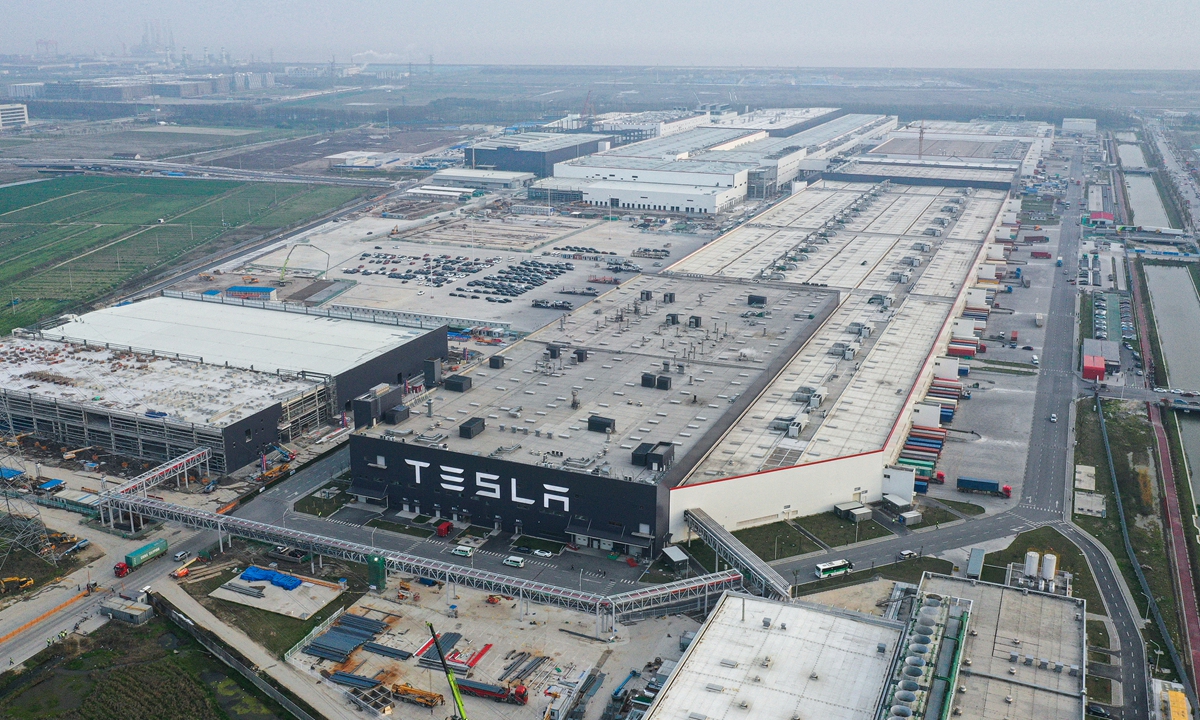Tesla’s Shanghai Gigafactory is a crucial production hub for the electric vehicle (EV) maker, producing both the Model 3 and Model Y vehicles for the Chinese market. However, the factory has recently been in the spotlight due to a protest by workers over wages and working conditions. Here’s what you need to know about Tesla’s Shanghai plant and the recent worker protest. The Shanghai Gigafactory, which began production in late 2019, is Tesla’s first wholly-owned manufacturing plant outside the United States. The factory covers an area of around 860,000 square meters and has a planned annual production capacity of 500,000 vehicles. The factory is a key part of Tesla’s strategy to expand its presence in the Chinese market, which is the largest EV market in the world. By manufacturing vehicles locally, Tesla can reduce costs and better compete with Chinese EV makers such as NIO and Xpeng.
The Shanghai Gigafactory is currently producing two models for the Chinese market: the Model 3 sedan and the Model Y crossover. The Model 3 is Tesla’s best-selling vehicle in China, and the company has been ramping up production to meet strong demand. In 2020, Tesla delivered over 137,000 vehicles in China, accounting for around a fifth of its global deliveries. However, the factory has recently been the focus of a worker protest over wages and working conditions. On 5th April, a group of Tesla workers gathered outside the factory to demand better pay and working conditions. The workers accused Tesla of not paying overtime wages and of forcing them to work long hours without breaks. The protest, which was captured on social media, highlights the growing labor unrest in China’s tech industry, where workers are becoming more vocal about their rights and demanding better pay and working conditions. The protest at Tesla’s Shanghai plant follows similar labor disputes at other tech companies such as Foxconn and Alibaba.

Tesla has responded to the protest by saying that it will investigate the workers’ complaints and take appropriate action. The company also emphasized its commitment to providing a safe and fair working environment for its employees. The labor dispute at Tesla’s Shanghai plant is unlikely to have a significant impact on the company’s operations or sales in China. However, it does highlight the challenges that global companies face in managing their supply chains and ensuring that their suppliers and contractors adhere to labor standards. Tesla has been criticized in the past for its labor practices, with some workers and labor advocates accusing the company of mistreating its employees and suppressing unionization efforts. The company has also faced lawsuits over alleged discrimination and harassment in its workplace. The labor dispute at Tesla’s Shanghai plant underscores the importance of companies taking a proactive approach to managing their supply chains and ensuring that their contractors and suppliers adhere to labor standards. It also highlights the growing role of labor activism in China, where workers are becoming more vocal about their rights and pushing for greater protections in the workplace.



